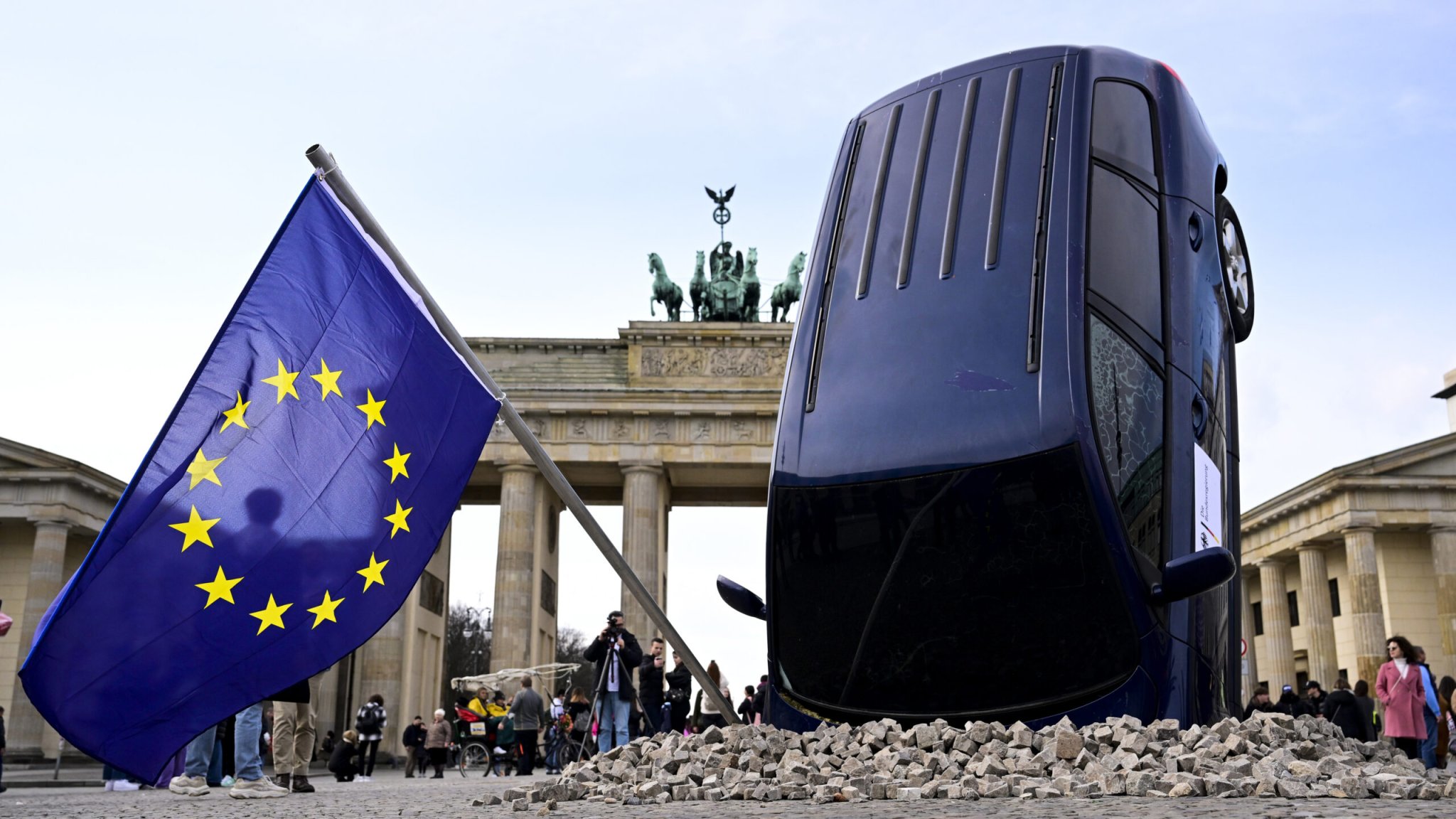

European officials on Tuesday approved a ban on sales of new cars that emit carbon dioxide in 2035 after tense negotiations and last-minute deals to exclude e-fuels from that ban. The restriction also includes a sizable cut in emissions by 2030 before the eventual stop-sale and would work to decarbonize Europe’s fleet of millions of cars on the roads.
Automakers such as Porsche, Ferrari, and Lamborghini lobbied extensively to include e-fuels in the final legislation as a way to make internal combustion engines without adding the extra weight of batteries.
“The good news for us as a company (…) is that on top of electric cars, we’ll also be able to go on with our internal combustion engines ones,” Ferrari CEO Benedetto Vigna told Reuters. “This decision is very interesting for us because it allows ICEs to go beyond 2036.”
Ferrari has said that a vast majority of the cars it sells by 2035 would be all-electric, although some of its cars would remain internal combustion powered as well. Other European automakers such as Volkswagen, Mercedes-Benz, and others have committed to an all-electric lineup by then, in keeping with many other mandates worldwide, including here in the U.S., that ban or limit the sale of cars that emit carbon dioxide.
What’s unclear is how the e-fuels could be produced at scale for Europe and other parts of the world without creating additional carbon dioxide. Synthetic fuels, or e-fuels, are created by capturing carbon dioxide that exists in the air already, although their creation requires significant amounts of electricity. Depending on how that electricity is generated—and whether that electricity is carbon-neutral—the e-fuels created in that process may contribute more carbon than the ban would allow. Automakers such as Porsche have demonstrated e-fuel’s capability on a very small scale so far, although it’s unknown if that has the potential to accommodate a much broader market later.
Got a tip? Send it in to tips@thedrive.com